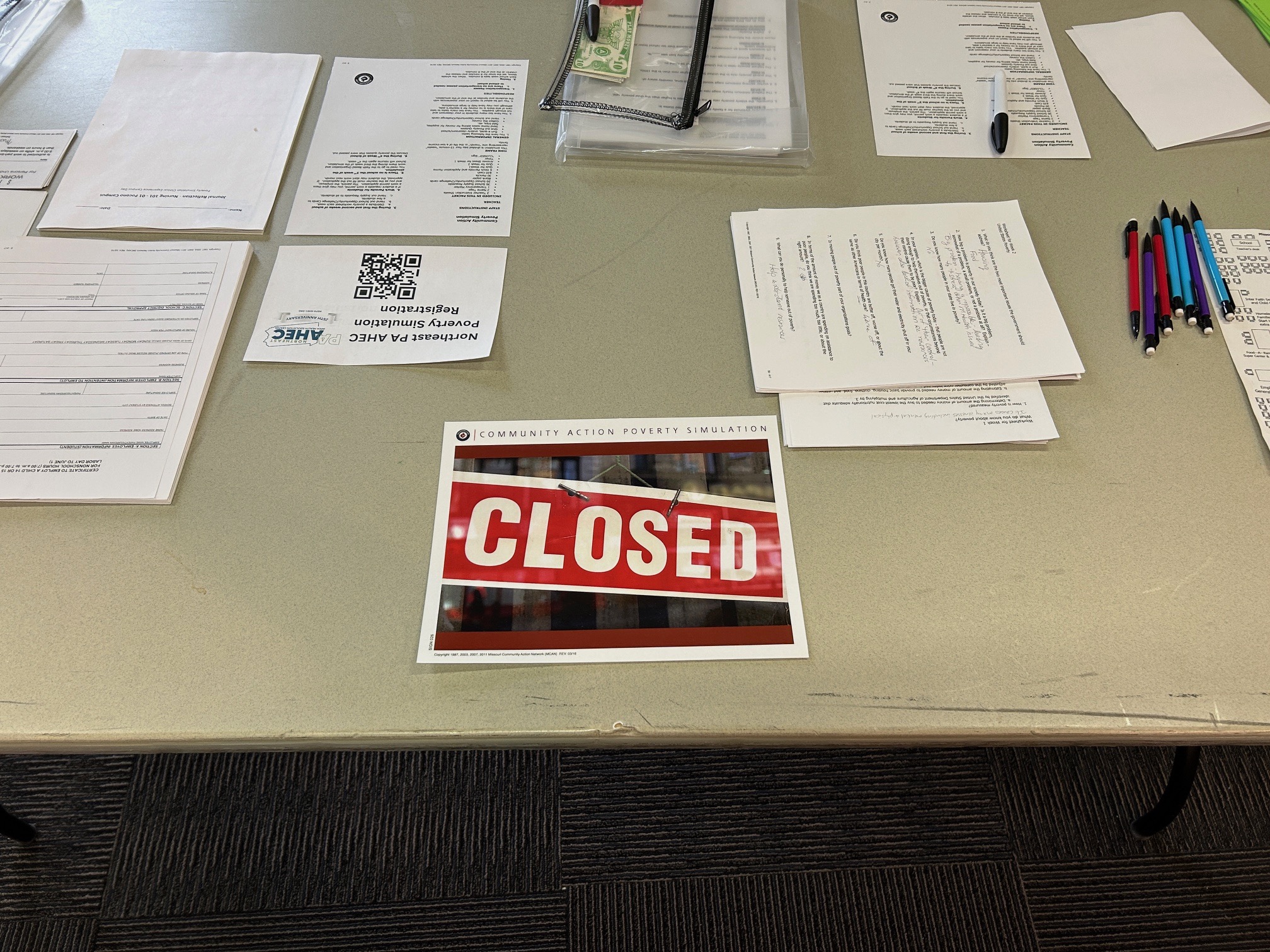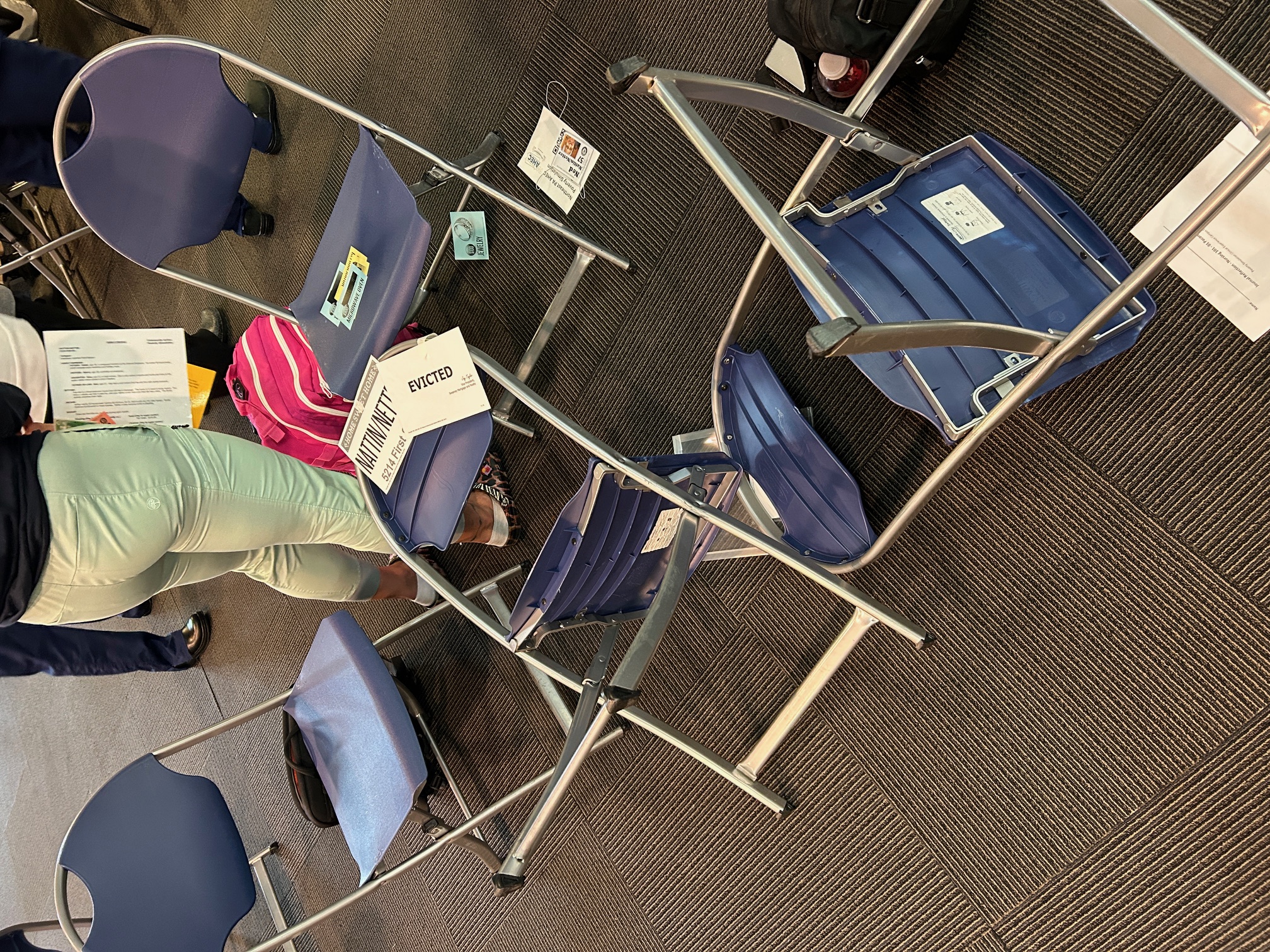Eighty percent of families in the U.S. will experience life near or below the poverty line in their lifetime, a staggering statistic. Many of those families cannot make ends meet but do not qualify for government assistance.
Northampton Community College (NCC), in collaboration with the Northeastern PA Area Health Education Center (AHEC), hosted a poverty simulation for nursing students, staff and community members at the Pocono campus this October. The event aimed to foster empathy and understanding of daily life in poverty.
“We’re here to better understand the challenges people in poverty face daily, though we cannot simulate hunger or toxic stress,” explained Leslie Petroff, an AHEC facilitator.
At the simulation event, the room was transformed into the fictional town of Realville, with stations representing essential services like banks, schools, grocery stores, healthcare facilities, and daycare. Participants assumed roles as children and adults, each with backstories based on real-life scenarios. From single parents with children to elderly couples, the families were tasked with meeting basic needs over a simulated month, including food, shelter, education, and healthcare. Petroff encouraged participants to act out their roles. “A child should be cranky if they have not had a meal all day,” she said, to emphasize the impact of poverty on behavior and stress.
Much like in reality, none of the services were conveniently located next to each other in town. At the end of the simulated day, if someone was still in line for a service, they had to return home without the items or service they needed because the provider was closed.

Each location had limitations on what it could offer. For instance, the homeless shelter had limited beds, and late arrivals at work resulted in job loss. Families also faced challenges such as running out of transportation passes, making it difficult to access essential services.
“My child got sick, and they had to use two transportation passes to get home by themselves, cutting into the passes we were counting on for that week,” said one student.
Some attendees gained new understanding of limitations that can result from poverty. For example, the school handed out cards to students to request money for field trips or other special circumstances. One child needed glasses to see the board in class, but the family could not afford the glasses. As a result, the student had difficulty learning in the classroom.
Services, like the Community Action Agency, offered help with utilities, food, and childcare, while the Department of Social Services provided Electronic Benefit Transfers (EBTs) for access to their cash and Supplemental Nutrition Assistance Program (SNAP) benefits. Overwhelmed case workers often delayed assistance, reflecting the real-life challenges felt by many of those in poverty.

After the simulation, participants shared their insights. They discussed the scarcity of time as a major issue, with one nursing student observing, “Time is a commodity. I was late to work because I was waiting in line for a transportation pass, and as a result, I didn’t get paid that day.” Another family was evicted because they couldn’t pay rent on time, forcing them to live in their car at a time when the shelter was full.
Healthcare, participants said, was often a last priority. A health clinic worker shared that only one senior covered by Medicare sought medical help. Many families avoided healthcare due to lack of time or money. A child with mental health issues faced expulsion for impulse control issues because his family could not afford the recommended care.
The experience was eye-opening for many participants.
The simulation’s organizer, NCC Nursing Professor Antoinette McCreary, said, “We heard such meaningful learning outcomes and takeaways for our students and staff that only could result from ‘walking in someone's shoes’ during this immersive poverty simulation. We're grateful our community partners from NEPA AHEC did their amazing work facilitating this impactful simulation on our Pocono campus. Thank you from my heart to all who participated!"
McCreary emphasized that food pantries at each of NCC’s campuses help students in need, and she encouraged participants to use this experience to motivate change in their communities.
To donate or access an NCC food pantry, visit www.northampton.edu/food-pantries.